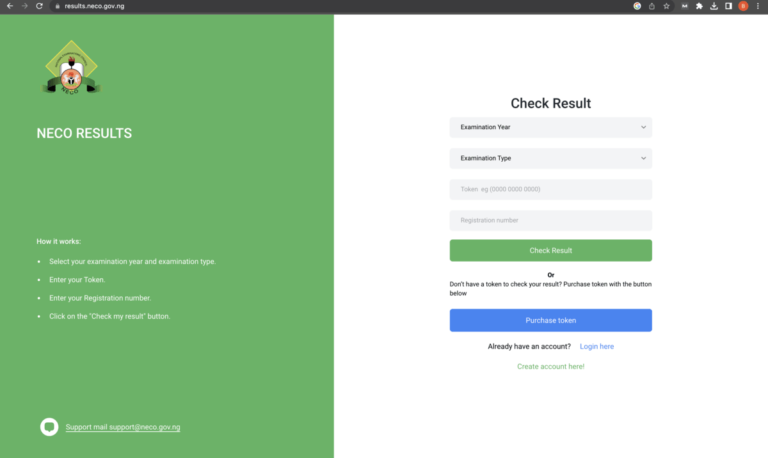How To Ace IELTS Speaking Test
One of the four essential components of an IELTS test is the speaking test. It is part of the evaluation where the examiner ensures that the candidate possesses the necessary attributes of a proficient English language speaker.
The candidates interact with the examiner and respond in English to demonstrate their proficiency.
Many candidates dread this section of the test mostly because of anxiety and fear of making mistakes. Furthermore, there is uncertainty about what will be asked of them during the speaking test.
Advertisement
Also, check out How to Pass IELTS Writing Test.
The examiner is more interested in the mannerism and abilities of the student’s proficiency in the language (English) through their responses. In essence, your knowledge base is not the decisive criterion to get good grades. With this, the speaking test is easy to pass and easy to fail.
To help students gain ground and confidence, we have to prepare vital tips that will help you get an overview of what the test entails and how you can ace the speaking test.
What IELTS speaking test is about?
As previously mentioned, the IELTS Speaking test evaluates the candidate’s ability to communicate effectively in English in a face-to-face conversation. Three parts make up the Speaking test, which takes about 11-14 minutes
Advertisement
Part 1: Introduction and Review
The first part of the test is the introduction and interview phase. There is not so much activity in this section. All you have to do is to introduce yourself and answer subsequent questions from the examiner.
The questions can be from any of the following areas relating to your personal information or lifestyle. You may get questions about your hobbies, family, hometown, work, aspirations, or reasons for writing the exams.
Furthermore, if you want to introduce yourself to the examiner, ensure that you are not too formal or too casual. Be calm and express yourself. Also, you do not need a lengthy introduction, your name, background, and a little personal information is enough.
Part 2: Cue Card or Topic Presentation
The second part of the discussion is where the real activity starts. The examiner gives you a topic to discuss and gives you a minute to gather your thoughts and response together. The total time taken for you to answer the given task will be 2 minutes.
Part 3: Discussion
The third section of the test is a follow-up on the second test. Here, the examiner engages you more, unlike the second part where the examiner listens to you for the most part of the allotted time. The examiner will question you on your opinions, ideas, and arguments regarding the question asked in the previous section.
Finally, you must know that the examiners look out for certain criteria when they assess you during the test. The criteria include:
- Effective communication
- Fluency
- Usage of appropriate grammar and vocabulary
- Coherency and logical reasoning in organizing thoughts
- Pronunciation and intonation
- Usually, the speaking test is recorded for quality control purposes and grading purposes.
Also, check out IELTS Score and Scoring System.
How is IELTS Speaking Test Graded?
For the test, you will have a discussion with a certified examiner who will grade your response according to the laid down criteria set by the International English Language Testing System (IELTS) program.
We mentioned earlier what the criteria are, however, here we will explore them. You will see grades for the following criteria: Fluency and Coherence, Lexical Resource, Grammatical Range and Accuracy, and Pronunciation.
The highest score you can get is 9 while the least score is 0 and each of the four criteria is graded with this scale.
Now, let us look at the four important criteria in detail:
- Fluency and Coherence: Your ability to communicate coherently and at a natural pace with few pauses is what the examiner looks out for. Also, they assess the candidate’s clarity of expression and ability to connect concepts.
- Lexical Resource: The examiner evaluates the candidate’s vocabulary and proficiency in using it correctly and in the right context.
- Grammar Usage: Another focus of the examiner is on the candidate’s capacity to employ a variety of grammatical structures in an exact and acceptable manner.
- Pronunciation: The candidate’s capacity to speak clearly and intelligibly while utilizing the proper rhythm, intonation, and emphasis is another essential thing the examiner watches in the candidate.
Tips on Acing IELTS Speaking Test
I know that this is part of the post that you are interested in because of how valuable the information shared here will help in the IELTS Speaking test. To ace your IELTS, here are some tips for you to use.
Practice speaking English regularly
You are halfway done to passing your test if you do this regularly and commit yourself to it. Practice makes you conversant with the language and helps identify your mistakes early. In addition, you will know the areas you need to sharpen your skills.
Furthermore, you can practice with your friends, tutors, or anyone that have a good understanding of the task at hand. Ensure to do your practice often by recording yourself. In addition, familiarize yourself with the format of the test: Know what to expect in each part of the test so that you can prepare yourself accordingly.
Improve your vocabulary
Keep a stock of vocabulary and work on expanding your vocabulary list daily. In addition, endeavor to use it in your daily interactions and in the right context. Furthermore, use flashcards, and vocabulary apps, and read extensively to improve your vocabulary.
Practice pronunciation
Sharpen your pronunciation of English words. Listen to English speakers or even take English pronunciation classes to help you with it. Doing this help you sound more natural and easier to understand when you converse in English
Listen to the questions carefully
It is crucial to listen to the words of the examiner carefully to get a good grasp of what you are asked to do. If you do not hear the examiners well, do not be shy to call their attention to help you clarify your confusion.
Give complete answers and extend them
Ensure your answers are complete and relevant to the topic asked. In addition, do give short answers and use examples to support your answers
Manage your time effectively
You need to learn how to manage your time consciously and effectively during the test. Failure to know how to manage your time will lead to interruption and cases of giving incomplete answers which are bad for grading.
Stay confident
Stay confident and natural all through the tests regardless of whether you have an idea about the topic or make mistakes. Stay positive and exude it in your mannerism till the end.
Answer questions even if you do not know
The test is not based on your knowledge prowess but rather on your ability to articulate and hear out your thoughts with spoken words through the use of English. Therefore, do not panic if you do not have the answers. What you should be concerned about is the response to give and how to do that well.
Do not speak too fast or too slow
Moderation they say is key, you need not be too fast or slow with your speaking pace. Make use of pauses and ensure your intonation stressed the feeling behind your spoken words.
Be natural and add emotions
You need to act naturally and add emotions to your words. Remember, it is a conservation between two human beings and you need to treat it as such. However, do not overdo it, remember moderation is key.
Final Notes on How To Ace IELTS Speaking Test
One crucial portion of the IELTS exam is the Speaking component, which many students dread. In this phase, you will engage with an examiner who will evaluate you during a videotaped session.
You will be assessed and evaluated in four main areas. Use the crucial advice provided in this post to easily ace your IELTS speaking test.
Before you go, check out how to Handle Tough Questions During Job Interviews.







3 Comments
Comments are closed.